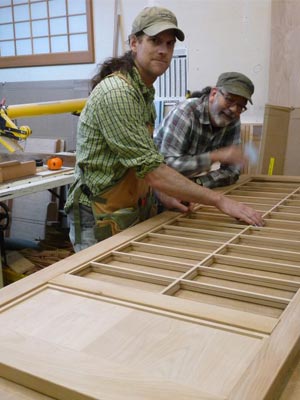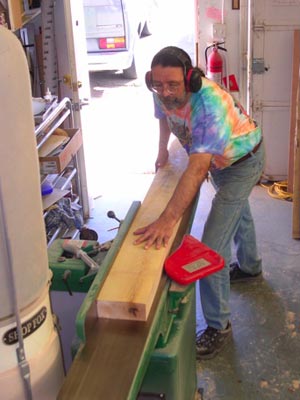Portland Shoji Screen – Hand Made Custom Sliding Japanese Doors
Welcome to Portland Shoji Screen. My name is Jason Vann, and I have a great passion for designing and making items from wood and have been doing so for more than 13 years. Beginning in 2019 I began specializing in creating beautiful, custom, hand-made sliding Japanese doors, windows, screens, and more. These Asian-style works of art are made in Portland, Oregon.
Portland Shoji was established in 1999 and has completed over 230 projects installed in homes and businesses all over the United States as well as Canada, England, and Costa Rica.
The original owner sold and trained me in 2019. He provided me with the additional knowledge I needed to combine my woodworking skills and knowledge to continue making high-quality custom Shoji screens.
Please call or contact me with your requirements or questions. I look forward to working with you.
So What is Shoji?
Shoji, or Shoji screen, is a Japanese word defined as a sliding outer or inner door made of a latticed screen covered with white paper. In other words, a sliding Japanese door. Additionally, some people just refer to Shoji as an Asian style sliding door. Either way, they are all one and the same – a type of Asian sliding door.
What is white paper? The paper is translucent and is commonly called washi, ‘rice paper’ or mulberry paper. Traditionally made by pounding the bark of the Paper Mulberry, Gampi tree Mitsumata Shrub. Because of its rough texture, this paper refracts and diffuses light and it is durable, sturdy, and thick.
Shoji Uses
As previously stated, Shoji aren’t just “doors,” they are fine furniture. Typically, all Shoji I make are custom and handmade doors. When the Japanese sliding door is closed, they softly diffuse light throughout the house – the room isn’t as dark as with a regular door. Traditional shoji slide on wood tracks very smoothly and quietly and work as a room divider, serve as sliding walls, or also window coverings. The modern version hangs from tracks containing rollers. Don’t want to have the Shoji act as a sliding door? Fine – you can remove the tracks and use the custom, handmade door as a room divider! Better yet, keep the Shoji on tracks, but use it as a custom made sliding door! It will not only add function to any room, it will add beauty. Want to add something distinctive to your existing wall? I can build you an Asian style shoji frame – you just add your favorite picture. There’s even more – a Japanese style shelving unit, a Japanese style cabinet or buffet, or even a Japanese style stair hand rail. I could go on….
Interested in more ideas? Please call or contact me with your inquiries. I’m here to help
The Owner
Jason Vann

The Founder
Terrance Maloney

Terrance Maloney built his first Shoji while working as a cabinet makers helper in 1982 when he apprenticed with John Massiocchi in Portland, Oregon.
The Shoji
Gallery

This gallery of finished Shoji showcases a few of the 50+ custom Shoji jobs Portland Shoji Screen has completed since 2019.


